Bid Proposal Template
Outshine competitors with a detailed Bid Proposal Template – efficiently convey project scope, pricing, and timeline.
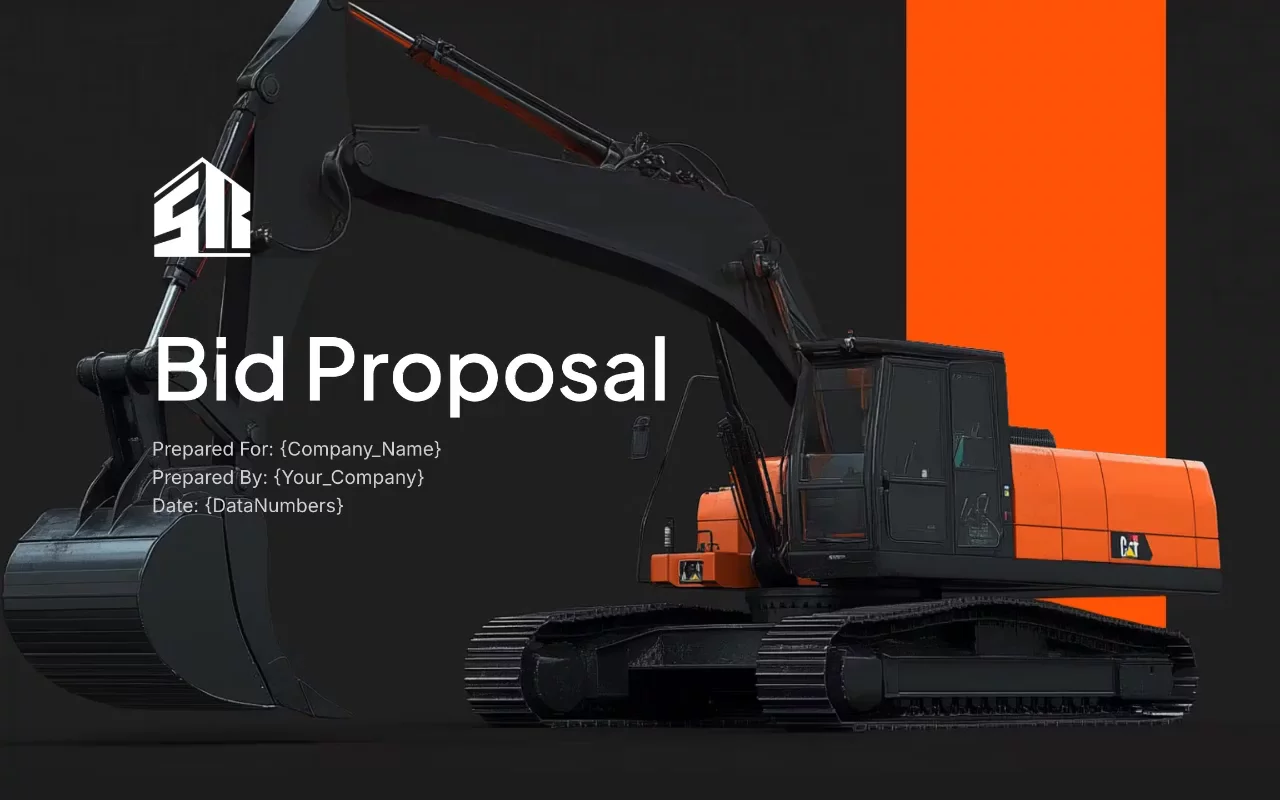
About this template
Secure more contracts with our Bid Proposal Template. Designed to outline your project scope, pricing, and timeline, this professional template helps you stand out from the competition and win more bids.
Equip your business with a user-friendly template that streamlines the bidding process and instills confidence in potential clients. Our Bid Proposal Template ensures clear communication and sets the stage for successful collaborations.
What's included?
- Case study
- Timeline
- Build Site
- Initial estimate
- Meet our team
Included in our template
Eye-catching cover page
A well-designed cover page sets the stage for your proposal. With Qwilr’s template, you can brand the front page with your company’s logo, project name, and client details, creating a strong first impression from the moment your proposal is opened. Instead of feeling like a generic bid, every proposal looks polished and customized, establishing credibility before clients even reach the details.
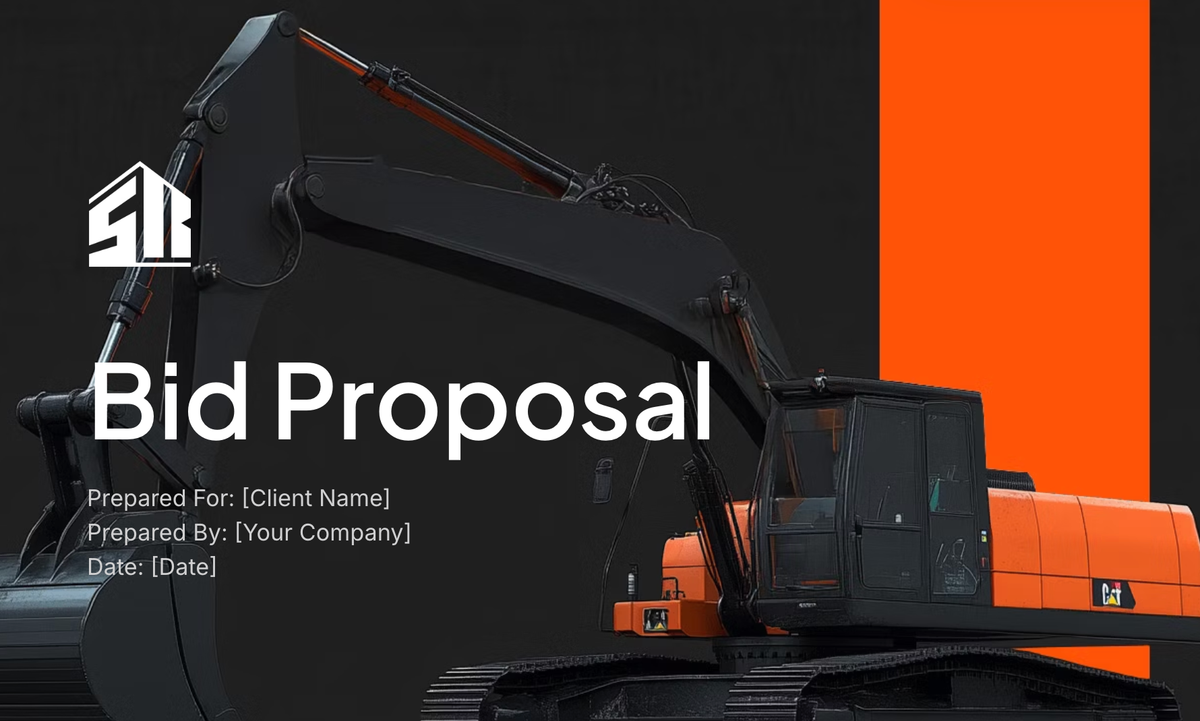
Scope of work
Clarity in scope is what separates winning bids from those that get overlooked. This part of the template helps you outline deliverables, responsibilities, and project requirements in a straightforward way. By breaking down the scope of work, you eliminate misunderstandings, highlight your expertise, and show clients exactly what they can expect from partnering with you.
![a black background with the words we propose to complete the following work for [ project name ]](https://cdn.sanity.io/images/vhpgdzfc/production/2f4b8870d46e58ac54066ef4da396ec4e4d30b7f-1788x1092.png?w=1200&q=100&fit=max&auto=format)
Timeline
Deadlines are critical in any project bid. Qwilr’s bid proposal template includes a structured way to present timelines, milestones, and key phases of delivery. Whether you’re outlining construction stages, creative sprints, or service rollouts, you’ll give clients a clear roadmap of how the project will unfold. Transparent timelines build confidence and show that your team has both the capacity and discipline to deliver on schedule.
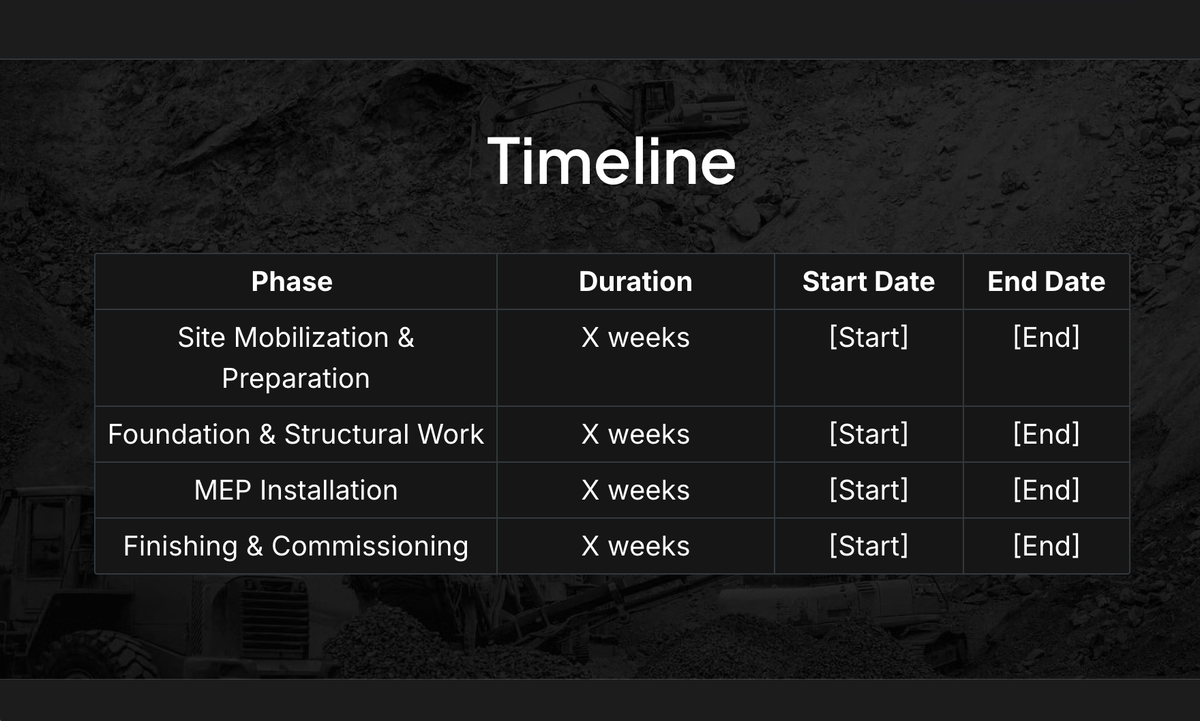
Dynamic quote
Budget transparency can be the deciding factor in winning a bid. With Qwilr’s interactive pricing tables, you can break down costs in detail while giving clients the ability to explore different options or adjust variables. This flexibility eliminates back-and-forth negotiation, builds trust, and makes it easier for clients to see the value behind your pricing structure.
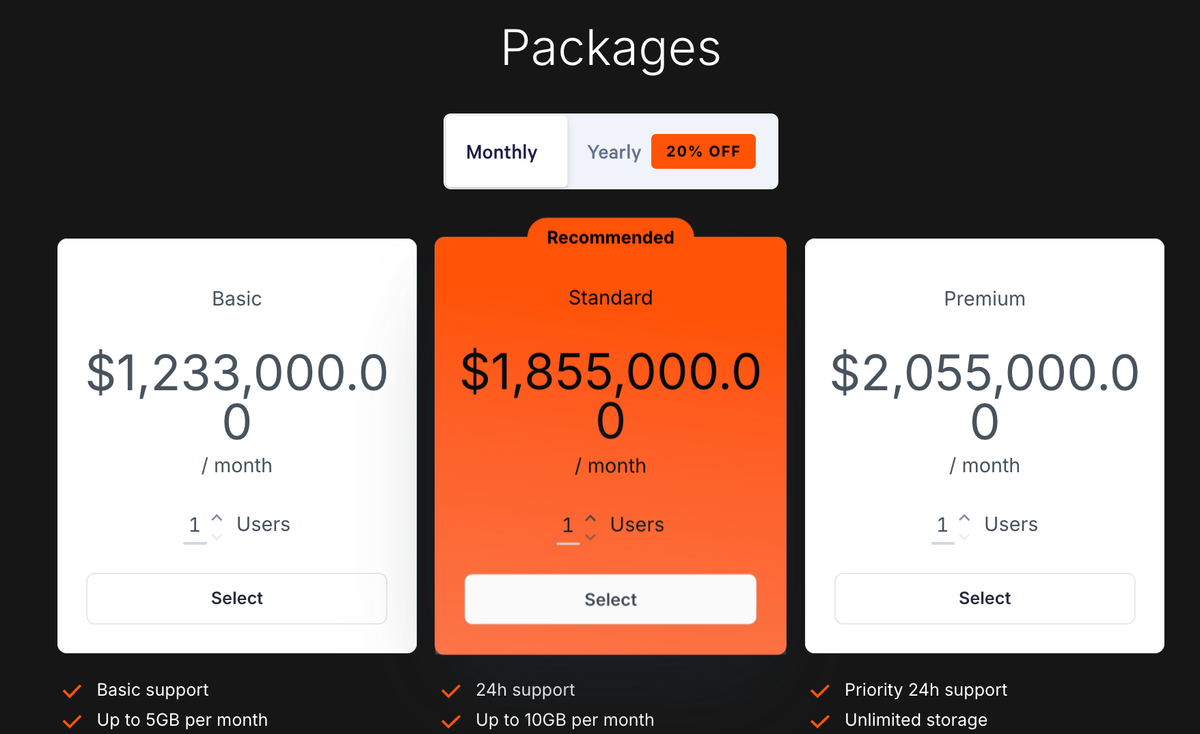
Formal agreement and e-sign
The faster a client can say yes, the sooner you can get to work. The built-in agreement and accept block transforms your bid proposal into a contract-ready document where clients can review terms and sign digitally. No printing, no delays—just a streamlined approval process that shortens sales cycles and locks in projects quickly.
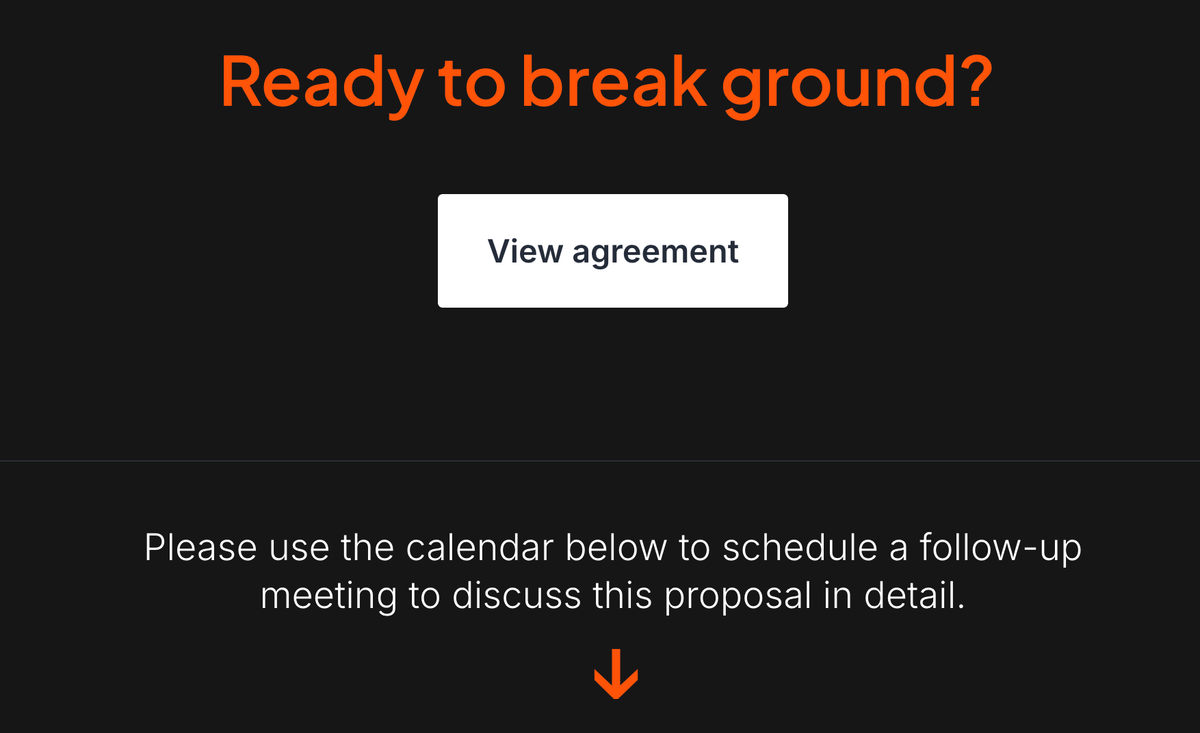
Why Qwilr?
Design interactive proposals
Impress buyers with interactive proposals that stand out. Qwilr’s drag-and-drop editor makes it easy to create on-brand, stunning collateral — no design skills needed. Add videos, dynamic pricing, and ROI calculators to deliver a unique experience, while automated brand customizations ensure every proposal looks professional.
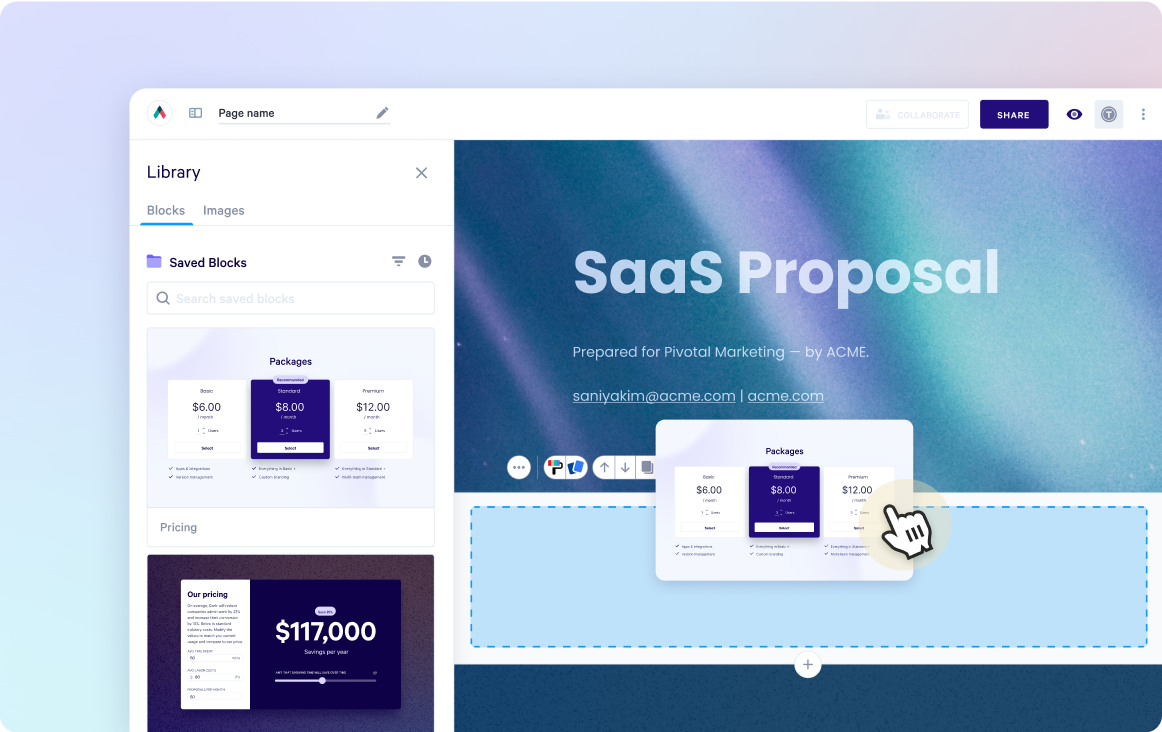
Built-in e-sign functionality
Combine stunning proposals, plain-text agreements, and secure e-signatures in one tool. Add print-friendly agreements alongside dynamic content and collect legally compliant e-signatures with ease. Track progress, capture multiple signatures, and close deals faster with Qwilr’s integrated e-sign functionality.
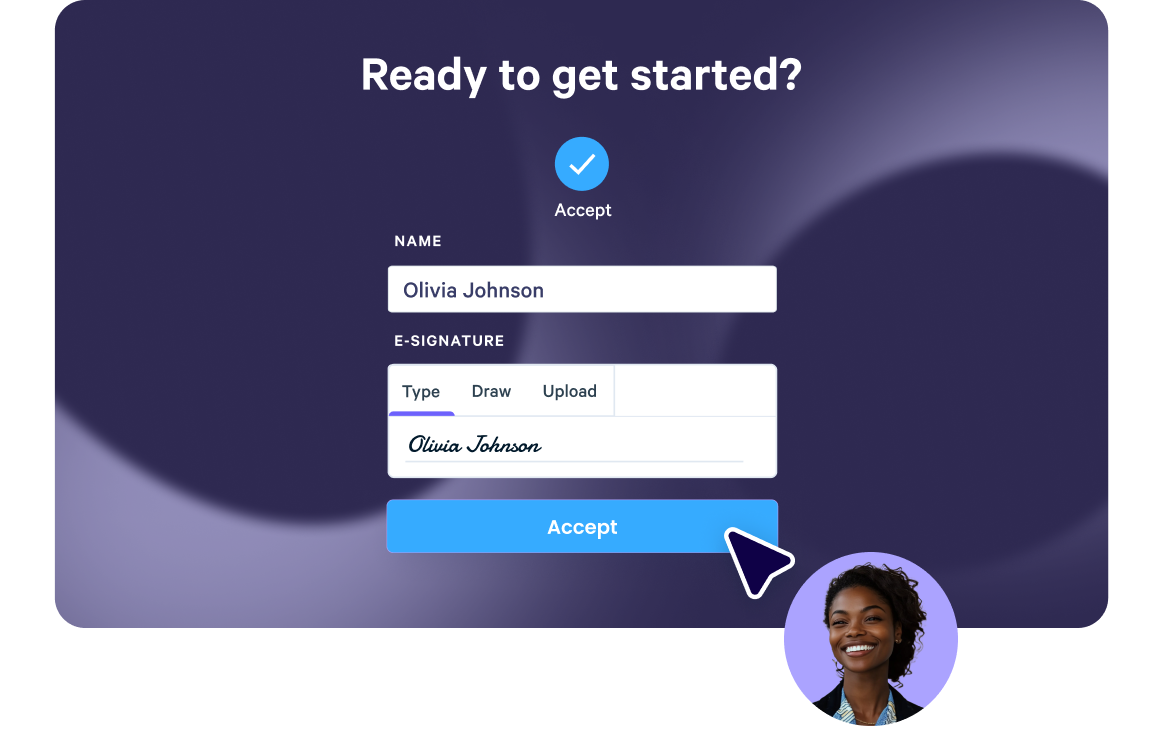
Real-time proposal analytics
Qwilr’s analytics provide full visibility into buyer engagement. Track when proposals are opened, signed, or shared, and get instant notifications for key buyer activities. See what buyers click on, how they engage, and prioritize follow-ups based on real-time insights—all designed to help close deals faster.
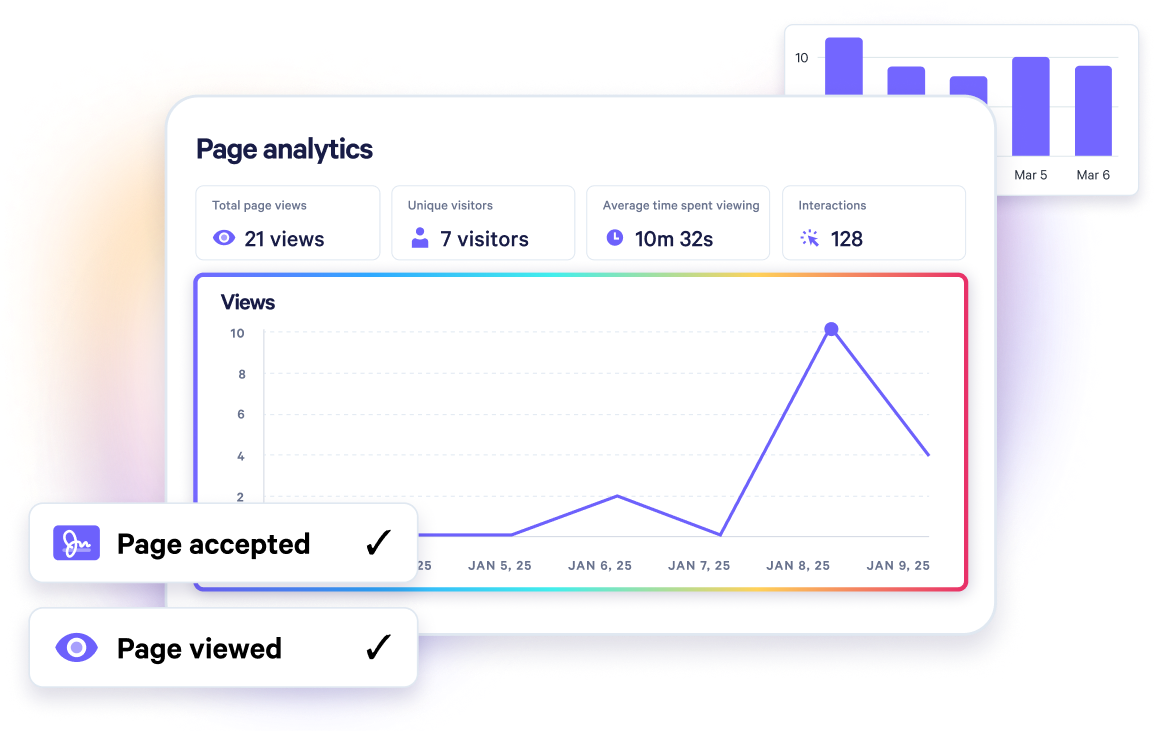
Templates for every use case
Explore templates for sales, marketing, customer success, sales enablement and more.
Explore templatesFrequently asked questions
When writing a bid proposal, you need to follow a professional and systematic approach. Start by researching the client's needs, requirements, and any other criteria that will influence your proposal. From there, you should create a detailed outline or structure for your bid proposal, before filling it out with your content.
Your bid proposal should include:
- A summary of your solution
- The scope of the project
- Pricing and budget breakdown
- Delivery timelines
- Your company's credentials, experience, and qualifications
- References and testimonials
A good bid proposal should be:
- Well-structured and organized, with relevant sections
- Clear, concise, and easy to understand
- Competitive in pricing and terms
- Address the client's specific needs and requirements
- Include your qualifications, credentials, and experience
- Visually appealing with design elements and branding
RFP (Request for Proposal) and Bid Proposal are both used in the bidding process, but in different contexts. RFP is a competitive bidding process that is usually initiated by the client, and it requires a more detailed proposal that usually requires a more extensive compliance with the clients' requirement. In contrast, a Bid Proposal is more simple, does not necessarily require extensive compliance from the propositioner, and may be initiated by either party.
The three main components of a bid proposal are:
- The technical proposal component, which includes the solution you're offering and how it will solve the client's problem
- The management proposal component, which covers the delivery timelines, project organization, and risk management plan
- The pricing proposal component, which details the financial terms and conditions of the agreement
The 4 steps in the bidding process are:
- Planning: Defining the scope and requirements of the project, identifying potential bid opportunities and developing a strategy.
- Preparation: Preparing a bid proposal, reviewing requirements, identifying potential risks and challenges.
- Submission: Submitting the proposal before the deadline, including all documentation required by the client.
- Follow-Up: Keeping in touch with the client, showing interest and responding to client queries.






